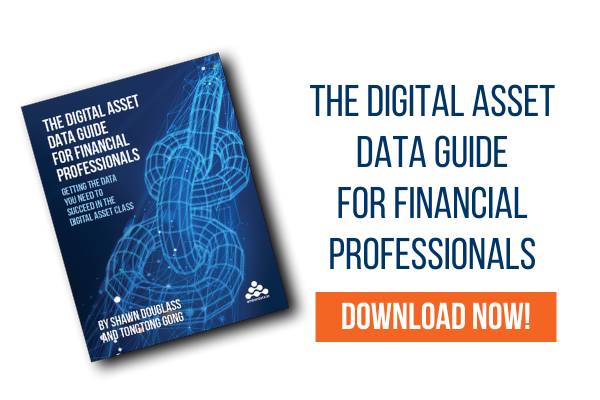The Blockchain Talent Shortage and How Institutions Can Bypass This Challenge

One of the major challenges facing institutions seeking to enter digital assets is the shortage of skilled and experienced talent. With more and more players entering the digital asset space, this shortage is not likely to abate anytime soon, and bidding wars for available talent, particularly developers, are common. With the lack of an established pipeline for blockchain talent, plus an anti-institutional streak among part of the qualified talent pool, it's clear that hiring the right people is a challenge.
Why is blockchain talent scarce?
The root cause behind the lack of blockchain talent is the novelty of the technology along with its specificity. Bitcoin was conceptualized less than 14 years ago, with the release of Satoshi Nakamoto's famous whitepaper on October 31, 2008, with the genesis block mined on January 3, 2009.
Ethereum, the most popular blockchain today and in some ways the protocol that enabled the popularity digital assets see today, would follow five years later. Vitalik Buterin released his whitepaper in November 2013, and Ethereum was launched on July 30, 2015.
Given that, in its early years, the crypto space was seen as little more than a curiosity most useful for illicit commerce, the number of people that moved to develop an understanding of the blockchain, and digital assets, was small. The majority of those early adopters were developers, with demand for traders, analysts, and other financial services skills limited until the latter half of the 2010's.
As a result, there are no established pipelines for blockchain talent in place, and the existing training programs are quite new. While universities have started rolling out blockchain-related certifications following the sector's rapid expansion in recent years and blockchain bootcamps are increasingly common, job openings will still exceed the number of professionals with blockchain skills.
How much does blockchain talent cost?
While there's no "official" data, the average salary for an experienced blockchain developer is estimated at around $150,000 per year, with entry-level positions starting in the low $100,000 range. These can go up to $250,000 per year for top talent – and all of these estimates are before any additional compensation, such as benefits or equity.
According to ZipRecruiter, blockchain analysts are cheaper, with the national average being around $110,000, but top earners can bring in as much as $200,000 per year in salary alone.
While these compensation figures are not entirely different from those seen in traditional finance, the overall quality of the talent you can hire is far less predictable. Given the novelty of blockchain technology, there are no established degrees or programs that can indicate a certain level of knowledge or skill. Many people enter cryptocurrency as a hobby, developing their skills informally alongside their day job, and then pursue a career in crypto either because they enjoyed their side project or because of the opportunity to significantly increase their salary without needing years of experience.
An additional challenge: evaluating blockchain talent
Evaluating potential hires is an extra challenge because recruiters and hiring managers may not know what to look for (or the particular red flags) due to their own lack of experience. If you're trying to hire a blockchain analyst but don't understand the intricacies of blockchain data, you may not even know the right questions to ask.
With each blockchain having its own particulars, what an Ethereum developer needs to know to be successful will be different from the knowledge needs of a skilled bitcoin developer. The same goes for analysts, traders, and other disciplines.
Ways around the talent shortage
The blockchain talent shortage dramatically shifts the scale of the age-old "build vs. buy" decision towards the "buy" side. Instead of spending considerable time and money figuring out how to hire blockchain specialists, finding those specialists, and then getting them ramped up to build the product you want, you can bypass the problem entirely by partnering with a company that's already done all of that work.
For financial institutions, blockchain talent is needed primarily for building the capabilities required to collect digital asset data and convert it into data sets usable by financial teams. Training analysts to understand digital asset data that comes across in formats they're already familiar with is easier than training them to interpret raw blockchain data, while having a trusted source for digital asset data eliminates the need for hiring blockchain developers.
We built the Amberdata platform specifically to empower institutions to enter digital assets without having to find their own solution to the data challenges and talent limitations. We collect and interpret blockchain data for you, providing it to your teams in familiar formats through easy-to-maintain API connections. Request a demo today to learn how Amberdata can help your institution get started in digital assets quickly while bypassing these challenges, enabling you to get your financial products to market faster.
Amberdata
Amberdata is the leading provider of global financial infrastructure for digital assets. Our institutional-grade solutions deliver data, analytics and comprehensive tools and insights that empower financial institutions to research, trade, and manage risk and compliance in digital assets. Amberdata serves as a...